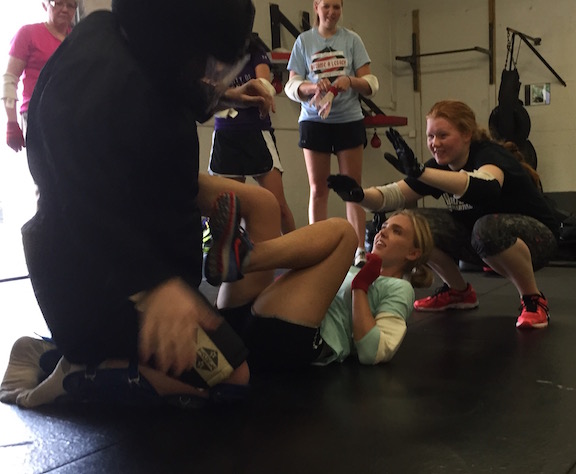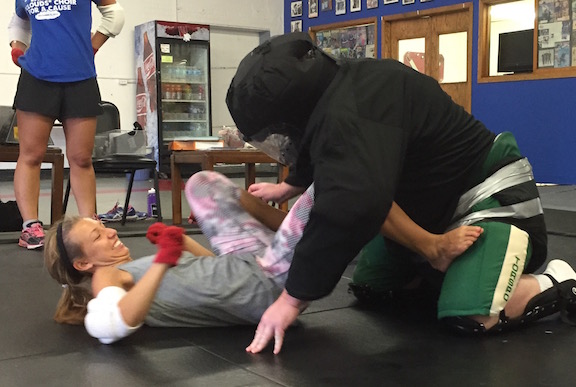Personal Safety for Women
We all take measures to assure our personal safety on a daily basis. Most of us wear our seat belts, lock our car doors, lock our houses, dress for inclement weather, wear shoes that will be appropriate to our environment, and have fire extinguishers in our homes. We all know the difference between uncomfortable and unsafe when it comes to our footwear, and don’t wear spiked heels on ice, sandals in the snow, snow boots on the beach, or go barefoot in a parking lot. We have seen numerous news programs on missing children, battered wives, date rape, date rape drugs, pedophiles, serial rapists/murderers and we’ve watched many dramas about the same. As a result, we are often afraid of a myriad of threats to our person. Some are realistic and some are not.
The good news is that we can change our lifestyle to make ourselves safer and less likely to be the victim of personal violence. We can become a “hard target” by eliminating our risky behaviors, identifying and avoiding any unsafe areas in our lives and then by getting self-defense training.
Your first action is... to take a good, honest look at your lifestyle.
The big areas to assess are:
- A) Your home and work environments
- B) The other places you go regularly (grocery store, the gym, hair salon, gas station, etc).
- C) How you get to and from A & B
- D) Your personal habits with people (family, friends, acquaintances, strangers)
Some brief questions to ask yourself are:
- Do you have anyone in your life who is a threat to you? If the answer is YES, go to the authorities, a women’s crisis organization and/or another professional in the field and get help! If you get suggestions on things to do to make yourself safer, follow ALL of them. (Whether or not you think they’re realistic.)
- Do you look like a “profitable” target? (Do you carry easily removable belongings or items of obvious wealth? Are you wearing clothing that would make you stand out in a crowd and make it hard for you to run away/fight back?)
- Could you quickly get out of your home, school, workplace in an emergency?
- Do you keep a full, or mostly full, tank of gas? (You never know where you’ll run out of gas.)
- Do you drink too much or use drugs? (If the answer is yes, do you have friends who will look out for you and help you “stay safe”?) Do you park your car in a safe place? (A well lit spot near an exit is best.)
- If someone makes you uncomfortable, do you move away from them?
- If someone asks you to give or loan them something (your time, money or belongings), do you have a hard time saying no? (Verbal skills and boundary setting skills would be good to learn if you answer ‘yes’ to this question.)
- Do you have the ability to physically defend yourself if necessary? (There are a number of books and videos on self defense that will also help you assess your lifestyle and any inherent risks in it. I’ve listed a few in this Reading list:.)
We all know that we should go to a class and get self-defense training, but many only do it after something happens to us, a friend, family member, or something appears on the local news. We want to believe that a martial arts aerobics class will give us self defense skills and that one strike will do the trick. The facts are, unless you get lucky, one shot probably won’t do the trick, and an aerobics class will not give you self-defense skills. (An aerobics class will help you get in shape to run away, which is essential.) While the topic of self-defense training is uncomfortable, and many of us have chosen to do anything else instead, it is one of the best things you can do for your mental and physical health.
If taking a self-defense class is too intimidating for you, try taking a martial arts class first. If even that is too much, take a class on assertiveness. Learn to say “NO.” Even something as simple as firmly saying, “No, thank you” to an unwanted drink, or, “I’m sorry I can’t help you, I’ll call 911” to a stranger that is making you uncomfortable, are huge steps toward your personal safety. Learning self defense will free your mind and your life from the fear of physical attack by preparing you to deal with it. It will not make you more masculine. It won’t make you paranoid, and it definitely won’t discourage you from doing what you like to do (unless drinking until unconsciousness in an unfamiliar, all male environment is on your list). It will not create a situation where you need to defend your life. Living with the fear of personal physical violence is unproductive and time consuming.
Self-defense is an enormous concern for everyone. For women, self defense is especially worrisome. If you haven’t taken a class, go. If you have taken a self-defense course, encourage your friends who haven’t. For the men reading this article, I hope it motivates you to get your female friends and family to go to a class. If you are teaching women’s self-defense, I hope this article helps you to evaluate your curriculum and approach to ensure it is everything you would like it to be. Remember the best self-defense training should enable you to AVOID ever needing to use your physical skills.
Learn to defend yourself. You may make new friends, boost your confidence, and find a new freedom in your life!
Additional Information:
What to look for in a self defense class
Recommended reading list
I wrote this in 2009 but wanted to put it up here. The information seems particularly relevant in today's climate. Also I wanted to share my thoughts, some info and the reading list ahead of some of the self defense workshops and lessons I've got coming up! If you have any question or comments, feel free to contact me.








